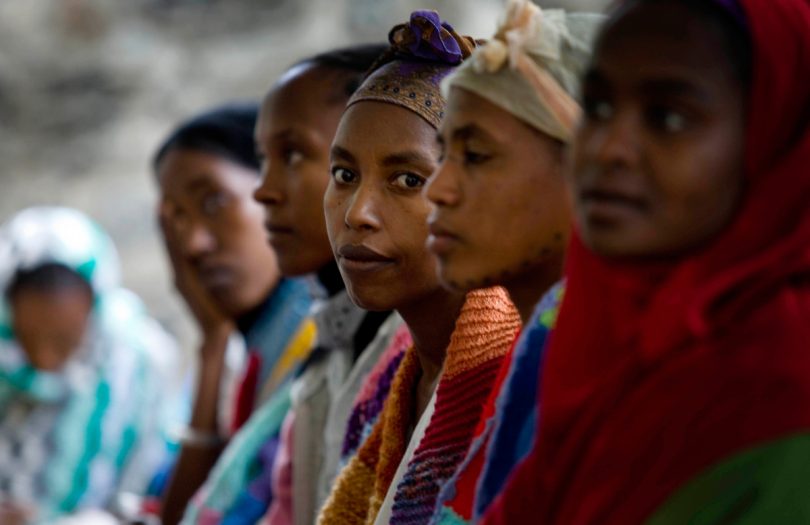The biggest disappointment of my time with responsibility for the Australian aid program was the failure to finalise Australia’s application for membership of the African Development Bank.
The decision was made, we had the money, the legislation was drafted and approved (unanimously) by the Treaties Committee of the Australian Parliament.
But I could not persuade the chair of the committee to give the legislation priority and it lapsed at the end of the term of parliament.
After the election in 2010 the Labor government no longer had the majority to pass such legislation.
After the 2013 change of government, the Abbott government slashed the aid program and lost interest in Africa. There was no will and no money to pursue such an application and the prospects do not look promising in the near future. The aid program remains relatively small and, therefore, necessarily becomes more regionally focused.
Does this matter? I believe it does.
There are several aspects of the case for Australia’s enhanced engagement with Africa.
First, there is the underlying rationale for the aid program, the fight against global poverty. If that is even part of the case for the development program then Africa deserves attention as the continent with the highest level of poverty. Larger donors than Australia from Europe and North America have a strong focus on Africa, as they should, given their historic and geographic connections. Australia’s contributions to bilateral programs in Africa will always be relatively small but they could be significant.
Second, I can see in the future Australian expertise in agriculture, mining and water playing a very useful role in Africa. But, for the moment, we should look to multilateral institutions to provide support to the poorest people in the poorest countries.
Third is the Indian Ocean connection. Australia’s almost exclusive east coast policy focus can blind us to the opportunities and challenges on our west coast, the Indian Ocean. Many Indian Ocean island and coastal nations could be of significance to Australia’s diplomatic and strategic priorities in future.
There is also a significant diplomatic interest for Australia to remain engaged with Africa. In the 2012 campaign for the United Nations Security Council election we made significant gains in support from African nations and these will be important in future similar initiatives.
The possibility of re-activating Australia’s African Development Bank (AfDB) membership application seems remote.
However, interesting developments within the European Bank for Reconstruction and Development (EBRD), of which Australia is a member, appear likely to lead to a mechanism to begin to fill the gap left by the failure to progress the AfDB membership application.
During the four and a half years that I represented Australia on the Board of the EBRD, management, led by the President, Sir Suma Chakrabarti, began to discuss with the Board and the member countries the idea of extending the EBRD’s activities to Africa.
Understandably the response of members was cautious. The primary concern was the risk of spreading the capital of the Bank too thinly and thereby interfering with its primary purpose, the development of prosperous democracies in Eastern Europe.
Two events changed those attitudes.
First, the Arab Spring generated opportunities for development banks to improve the lives of people in North Africa and the Middle East. This led initially to an extension of the bank’s region of operation to include Egypt, Morocco, Tunisia and Jordan.
The second international development was the Russian invasion of Crimea. This led to the EBRD’s abrupt termination of investment in Russia, which had been until that time its largest country of operation. This freed up capital and required the Bank to seek new ways to utilize its resources profitably and usefully.
Since that time there has been a gradual creep of EBRD activity to Africa and the Middle East. The bank now has Iraq, Algeria and Libya as members and has commenced operations in Lebanon and the West Bank and Gaza.
At the 2023 Annual General Meeting, the Bank’s Governors supported a cautious extension of the Bank’s activities to sub-Saharan Africa. Australia supported this resolution.
The resolution as adopted identified six sub-Saharan African countries where the EBRD assesses that its methods and models of activity would be most effective. These countries were Benin, Cote d’Ivoire, Ghana, Kenya, Nigeria and Senegal.
The Board of Governors of the EBRD has received and approved applications for membership from the first sub-Saharan African countries to apply, Benin and Cote d’Ivoire.
What happens next in terms of sub-Saharan African applications will be very interesting. It is obvious that the success of the Benin and Cote d’Ivoire applications will lead to applications from other African countries.
Some of the potential member countries, for example Kenya, are good friends of Australia. Kenya is an Indian Ocean partner and Australia has a long history of good relations with it.
We could be actively involved in encouraging applications for membership and country of operations status and might well invite some new member countries from sub-Saharan Africa to join our constituency at the Bank.
By 2025, Australia will have become a member of an African development bank in spite of itself.
I hope we take advantage of the opportunities that this will generate.



Bob McMullan provides a compelling argument for Australia’s engagement with Africa through multilateral institutions like the African Development Bank (AfDB) and the European Bank for Reconstruction and Development (EBRD). He underscores the importance of addressing global poverty, leveraging Australian expertise, and strengthening diplomatic ties. However, while the EBRD’s extension to Africa presents opportunities, it’s crucial to ensure that such expansion doesn’t dilute the bank’s primary mission in Eastern Europe. McMullan’s optimism about Australia’s eventual membership in an African development bank is tempered by the challenges of missed opportunities and shifting geopolitical dynamics. Nonetheless, his call for proactive engagement and seizing potential benefits reflects a pragmatic approach to international development and diplomacy.